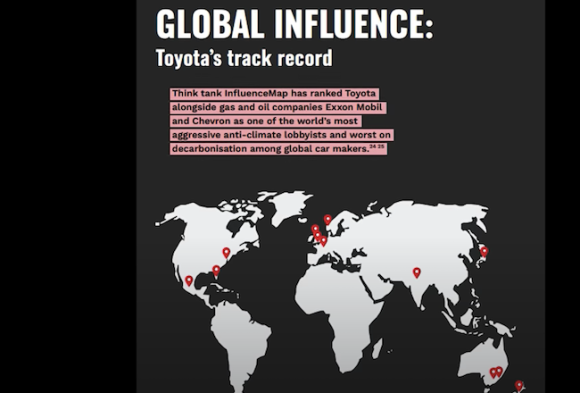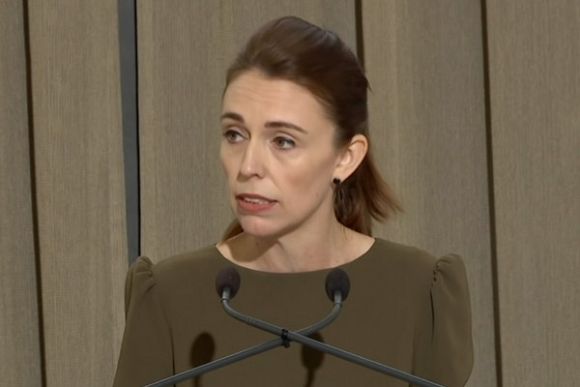The legacy of retiring New Zealand Prime Minister Jacinda Ardern must include sound economic management, as Alan Austin reports. But it probably won’t.
*Also listen to the audio version of this article on Spotify HERE.
JACINDA ARDERN will be remembered for many things as she leaves office next week. She led her nation and the watching world in grieving the tragic mass shootings at two mosques in Christchurch in 2019. She ensured the perpetrator remained unnamed and uncelebrated and then introduced new gun laws.
She charmed the United States through her warm and quirky relationship with late-night comedian Stephen Colbert. Colbert’s visits to New Zealand had him describe it as “a magical land where hugs still happen”.
She had a baby while in office and did so having flouted the Anglo-colonial convention of getting married first.
She advanced New Zealand’s foreign policy, with successful visits to Vietnam, England, France, China, the USA, Spain, Australia and elsewhere. She also responded courageously to a global pandemic, a deadly volcanic eruption and constant pressures inside New Zealand’s enigmatic political system.
This was all achieved in a regime of relentlessly negative media coverage from most of the English-speaking world’s mainstream media, including the ABC, The Guardian, and all the malicious News Corp outlets in Australia, Britain and the USA. She even copped sexist slurs from the BBC.
Historians will chronicle Ardern’s accomplishments more fully in due course. But for now, the constant negative media narrative that she was weak on economic management can swiftly be debunked.
In fact, despite malicious accusations to the contrary, Ardern took New Zealand’s economy from the ranks of the also-rans among advanced countries to one of the leaders.
Employment among the leaders
New Zealand’s jobless rate has been at 3.4% or lower since June 2021. For two of the last four quarters, the rate was 3.2%, the lowest since records have been kept. That ranks fifth in the OECD.
Job participation has remained within the optimum band between 69 and 72%. Labour productivity has increased steadily, except for a blip during the COVID recession, and has just hit a new peak of 132.02 in the latest quarter.
Wages have increased from NZ$30.51 (AU$28.39) per hour in Ardern’s first quarter to NZ$37.93 (AU$35.30) in last year’s third quarter. Youth unemployment has tumbled from above 13% to 9.0% now.
Top four economic growth
Annual growth in gross domestic product (GDP) for all 38 wealthy OECD members shows New Zealand ranking fourth, behind only Ireland, Iceland and Colombia. This is the highest ranking since records have been kept. See grey chart, below.

That exposes the mendacity of the compulsive liars last week who claimed her economy was “on the verge of recession”.
When Ardern became Prime Minister in October 2017, New Zealand’s annual GDP growth was a modest 3.0% which ranked in the OECD a dismal 19th.
Economy humming along
Ardern overhauled archaic housing laws, promoting multi-dwelling apartments over single-family homes in the big cities. The New York Times recently acknowledged this as ‘transformational’.
According to Stats NZ, total housing stats improved in every Ardern year and boomed over the last two.
New Zealand’s inflation rate was 7.2% in last year’s third quarter, just below the peak of 7.3 the quarter before. This is well below the OECD average of 11.6%, ranking around 11th. Not outstanding, but not shameful.
Ardern’s government has impressed with its budget discipline, generating healthy budget surpluses in 2017, 2018 and 2019. The pandemic recession year caused a deeper deficit, but that rebounded in 2021.
Economic freedom scores compiled by Heritage Foundation in the USA give her a big tick, ranking New Zealand as the top economy in the OECD in four of the last five years.
Which work best — progressive or conservative economic policies?
For comparative econometrics wonks worldwide, New Zealand has been one of several countries – along with Australia, Switzerland and Ireland – which have enabled comparisons over time of economic outcomes under both reformist and conservative administrations.
New Zealand had a Labour government from 1999 to 2008, then a conservative National administration from 2009 to October 2017 and from then onwards, Labour again.
Close observers of the Global Financial Crisis noted the contrasting approaches to economic stimulus through taxation and spending of Australia and New Zealand. Australia clearly achieved the world’s best economic outcomes through that period, while New Zealand struggled. New Zealand experienced six quarters of economic recession; Australia had none.
After 2013, however, New Zealand changed its economic policies, largely to emulate former Australian Labor Treasurer Wayne Swan’s, and saw substantial improvement thereafter.
Australian voters ousted Labor in 2013 and installed the conservative Coalition, after which its economy deteriorated badly year after year.
The Ardern Government continued most of the reforms of the later years of the Nationals’ rule but implemented fresh progressive initiatives. These included raising the minimum wage and hiking the top personal tax rate from 33 to 39%.
Overall, the Ardern years provide a positive picture of the efficacy of policies and programs which support the disadvantaged.
Not all plain sailing
While Ardern has millions of admirers worldwide, she has her critics.
Teen climate activist Greta Thunberg admonished her in September 2021:
It’s funny that people believe Jacinda Ardern and people like that are climate leaders.
Obviously, the emissions haven’t fallen.
Climate action will be an area of mixed reviews, as will relations with the superpowers, foreign affairs more broadly and some aspects of wealth distribution.
But on economic management overall, Ardern has proven the validity of the old cliché regarding senior management: For a woman to be regarded as half as good as a man she must work twice as hard and achieve four times as much. Fortunately, this is not difficult.
*This article is also available on audio here:
Alan Austin is an Independent Australia columnist and freelance journalist. You can follow him on Twitter @alanaustin001.
Related Articles
- Wren's Week: Jacinda Ardern shoots down Scott Morrison over deportations
- Malcolm Turnbull, Manus and New Zealand: Time to let these people go
 This work is licensed under a Creative Commons Attribution-NonCommercial-NoDerivs 3.0 Australia License
This work is licensed under a Creative Commons Attribution-NonCommercial-NoDerivs 3.0 Australia License
Support independent journalism Subscribe to IA.















